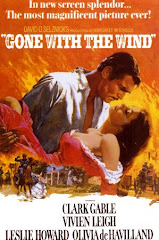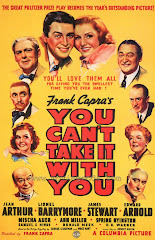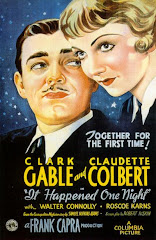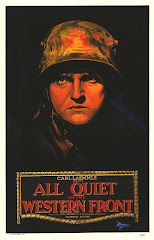Cast: Charles Laughton, Clark Gable, Franchot Tone
Genre: Drama
Other Nominees: Alice Adams, The Broadway Melody of 1936, Captain Blood, David Copperfield, The Informer, Lives of a Bengal Lancer, A Midsummer Night's Dream, Les Miserables, Naughty Marietta, Ruggles of Red Gap, Top Hat
I have noted in various reviews of The Mutiny on the Bounty that people complain about the film’s historical inaccuracy. Apparently the events portrayed here do not match what really happened on board the ship. To be frank I do not really care if the movie is not based on reality because in the end I enjoyed this one too much to care! A more accurate version was made in 1984 starring Mel Gibson and Anthony Hopkins so if you want to see what really happened rent that one but be warned that it was poorly received with bad reviews. This 1936 version may not be true to life but it makes for a great film and, with respect to the movies left to see from the 1930’s, it might even go down as my choice for movie of the decade.
The movie tells the story of Fletcher Christian played by a moustache-less Clark Gable. It is the first time Gable ever appears on screen without his trademark moustache and apparently he was very reluctant to shave it off (Gable was the Hollywood superstar at this time. Consider that he was also a lead in the previous Best Picture winner, It Happened One Night. Apparently he was on quite the roll). Fletcher is the first mate aboard The Bounty serving the abominable Captain William Bligh, played by Charles Laughton. It is Fletcher who enacts the movies namesake and mutinies against his captain after he can no longer withstand seeing the cruelty inflicted on the sailors.
The success of this movie is in its ability to make the audience hate the captain as much as the men do. The first half of the film is example after example of the cruel punishments that the captain uses to rule his ship by fear. One minute he sends one of them to the top of the mast in a massive storm and the next he ties another upright in the baking sun. Beatings are common for even the slightest offence. He steals from the ships supplies and then forces his men to work on meager rations. Probably the most striking example is the very first one we see when he continues to have an already dead man whipped so that the punishment is completely carried out. By the time Fletcher mutinies the men on board the ship are not the only ones relieved. As a viewer you really do want to see Bligh get his comeuppance. As Fletcher puts it:
I've never known a better seaman, but as a man, he's a snake. He doesn't punish
for discipline. He likes to see men crawl. Sometimes, I'd like to push his
poison down his own throat.
The scrolling introduction makes the point that the treatment of sailors improved in the decades after this event and that the mutiny that took place on the Bounty had a direct impact on this. I do not know how true that is but the message that the movie makes is clear. There is a speech made towards the end of the film that talks about how great the Navy could be if the wickedness was stamped out and if the sailors were treated right. A part of it goes:
He could sweep the seas for England if he called his men to their duty, not by
flaying their backs, but by lifting their hearts
I was going to start talking about the inaccuracies of the film as they are well documented but I realized that I do not watch movies for accuracy. I watch movies to see a good story told and to be entertained. The reality is that there is a very good story to be told here and like all great stories it has a hero you can relate to and a villain you can despise.
Next Up: The Great Ziegfeld



















































No comments:
Post a Comment